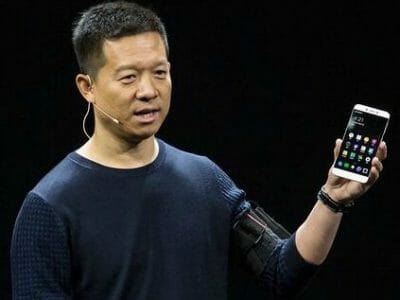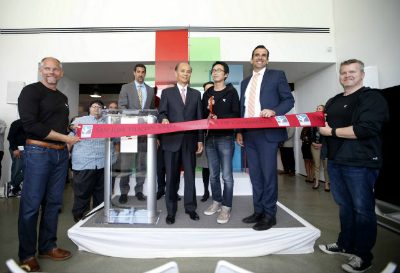
Did LeEco co-founder Jia Yueting think that buying the black shirt and waving the smartphone created endless cash?
When Chinese tech firm LeEco paid Yahoo $250 million for a California site this June, it looked like another mainland giant that had limitless cash and all the answers.
However, after the co-founder of the company referred to as the “Netflix of China” revealed last week that the acquisition-happy firm is now short of cash, it looks more like a 16-year-old that just drove his dad’s Corvette into the mailbox.
LeEco, which made a fortune in video streaming, purchased US-based TV maker Vizio for $2 billion earlier this year and has pumped RMB10 billion ($1.4 billion) into smartcar unit LeEco See Pro. The company has also invested in everything from Android phones to smartbikes.
As startups are wont to do, LeEco seems to have spent beyond its means with Jia revealing in a letter obtained by the media that the firm has spent too much on acquisitions and not enough on building a foundation.
“The company spread itself too quickly. They have a big ambition to create an ecosystem for different devices, not only for phones and TVs and set-top boxes but for vehicles,” Sandy Shen, a research director with Gartner Inc., told Bloomberg. “They have a big ambition that is too big to swallow at this moment.”
Wang Jianlin and Jack Ma’s Cash Not Enough
The company, which is also known as “Netflix of China”, has no shortage of high profile backers. Wanda Group and Jack Ma’s private equity fund Yunfeng Capital are among those to have financed the company’s LeSports video streaming service that raised RMB 8.8 billion ($1.2 billion) in funding. Despite its streaming expertise, LeSports lost RMB 569 million during the first 11 months of 2015.
The Beijing-based firm raised $1.08 billion to help develop its electric car with heavyweights Legend Holdings, Yingda Capital Management and China Minsheng Trust all backing the project. Despite the firm’s funding success, it hasn’t been enough to sustain its expansion efforts.
“Our fundraising ability isn’t strong,” Jia wrote in the letter. “The scale of our external fundraising had trouble satisfying the demands of our rapid expansion.”
US Ambitions Hang In The Balance

LeEco opened its Bay Area office to great fanfare, but it might not be able to pay those 12,000 employees it wants to hire
LeEco made its June deal with Yahoo for a Santa Clara site as part of the plan for EcoCity. The complex is envisioned as a place that would serve as the company’s US-base and house up to 12,000 employees, a significant increase from the 250 it had in the US before the firm’s big North American launch. LeEco had dreams of taking on Apple, Tesla and the rest, but now finds itself wondering what is next.
“No company has had such an experience, a simultaneous time in ice and fire,” Jia said. “We blindly sped ahead, and our cash demand ballooned. We got over-extended in our global strategy. At the same time, our capital and resources were in fact limited.”
Chinese Buyers Think Outside Of The Box In Bay Area
LeEco isn’t the only mainland firm with ambitious plans to build in the bay. And unlike the video streaming startup, the developers and insurers involved in these deals are on a little more stable footing.
In August, Greenland Group led a group of four Chinese investors, including a unit of insurance giant Ping An, in acquiring a 42-acre waterfront site in South San Francisco. The plan for the site is to build a $1 billion life sciences complex that would serve as a campus for biotechnology companies.
US private equity firm H&Q Asia Pacific was involved in the acquisition of a 71,000 square metre business park in Burlingame for $47.7 million with financial backing from Kylli Inc, a subsidiary of Chinese resort developer Genzon Group. The buyers acquired the site due south of San Francisco with the intention of redeveloping it into a commercial complex as a US home for Asian companies.
Leave a Reply